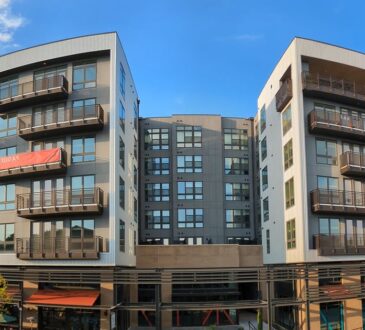Kenya’s luxury hospitality sector is riding a wave of significant growth, attracting the attention of global investors, policymakers, and tourism experts alike. As the country positions itself as a premier destination for high-end tourism, a confluence of factors — from a steady influx of international visitors to a stable economic environment — is shaping a compelling investment landscape.
These dynamics will be at the heart of discussions at the 12th East Africa Property Investment (EAPI) Summit, scheduled for May 7–8, 2025, at Pullman Hotel in Upper Hill, Nairobi. This premier real estate conference will gather over 450 stakeholders, including investors, developers, hotel operators, and policymakers from across the globe, to examine the challenges and uncover investment opportunities in East Africa’s hospitality and property markets.
A Sector Poised for Transformation
Industry leaders assert that Kenya’s upscale hospitality industry has reached a pivotal point. With a 35% rise in international arrivals and a burgeoning middle class equipped with higher disposable income, demand for premium accommodations is accelerating.
Bani Haddad, Managing Director of Aleph Hospitality, emphasized the sector’s potential:
“Kenya presents a great opportunity for hospitality investment due to its unique combination of untapped potential, economic stability, strategic location, and government incentives.”
Aleph Hospitality, the largest independent hotel management firm in the Middle East and Africa, sees Kenya as an ideal destination for high-return investments in luxury tourism. Haddad pointed to incentives such as supportive government policies, strong economic fundamentals, and rapidly growing travel demand as catalysts for growth.
Nairobi and Masai Mara Lead the Charge
Two regions stand out in Kenya’s hospitality landscape: the capital Nairobi, an economic and logistical hub, and Masai Mara, a globally recognized safari destination. According to Fiona Craw, Vice President at JLL Africa’s Hotels & Hospitality Group, both locations are seeing “robust demand across corporate, leisure, MICE, and government travel segments.”
Kenya’s positioning as a Meetings, Incentives, Conferences, and Exhibitions (MICE) leader is further bolstered by ongoing infrastructure investments, which enhance accessibility and the country’s reputation as a business travel hotspot.
Aviation Infrastructure: Key to Sustained Growth
Mark Dunford, CEO of Knight Frank Kenya, underscores the critical importance of air connectivity.
“Jomo Kenyatta International Airport must remain a hub for the Sub-Saharan region,” he said, advocating for more long-haul routes and regional airport upgrades.
Improving aviation infrastructure is essential for Kenya’s ability to accommodate increasing international travel and further establish itself as a luxury destination in Africa.
Industry Hurdles: Oversupply, Visa Issues, and Operational Strains
Despite the optimistic outlook, experts acknowledge several headwinds. Oversupply of hotel rooms in Nairobi — with 2,000+ new rooms added in just 18 months — poses a challenge for occupancy rates and profitability.
“There’s increased pressure on market performance throughout 2025,” warns Craw. Yet, Daniel Trappler of Radisson Hotel Group believes not all areas are saturated. “Select nodes in Nairobi still offer untapped opportunities with the right brand and location.”
Another key barrier is the complex visa regime. Dunford notes that simplifying entry procedures could significantly boost visitor numbers. Currently, most African countries, including Kenya, face bureaucratic and costly visa processes that hinder seamless travel.
Additionally, challenges such as security concerns, supply chain disruptions, human resource constraints, and high operational costs due to inflation persist. Haddad advocates for deeper public-private partnerships, streamlined land acquisition processes, and talent development as long-term solutions.
Sustainable and Strategic Growth Paths
Despite obstacles, Kenya is well-positioned to evolve into Africa’s luxury tourism powerhouse. Experts suggest the following forward-looking strategies:
-
Public-Private Partnerships: Innovative financing structures can ease development costs and attract capital for large-scale projects.
-
Eco-Friendly Luxury: Resorts are embracing solar energy, waste reduction, and conservation programs to align with global sustainability expectations.
-
Bespoke Travel Experiences: Exclusive offerings like private safaris, cultural immersions, and secluded coastal villas are central to capturing the affluent traveler’s interest.
-
Airport Modernization: Continued investment in Jomo Kenyatta International Airport and regional air hubs is necessary to accommodate growing demand.
A Long-Term Vision for East Africa
The 2025 EAPI Summit isn’t just about Kenya. Participants will also explore investment opportunities across Tanzania (especially Zanzibar), Uganda, Rwanda, and Ethiopia — markets exhibiting signs of economic stabilization and increasing tourism potential.
Jugal Khushalani, Senior Director for Development at Marriott International, highlighted Kenya’s strength across multiple segments:
“There’s a growing appetite for high-end experiences, and we remain committed to expanding our portfolio of urban hotels and safari lodges across Kenya.”
Optimism Tempered by Strategy
Kenya’s luxury hospitality sector is experiencing a pivotal moment — one that combines rising demand with investor confidence and expanding infrastructure. With the right strategies and collaborative approaches, Kenya can solidify its position as a leading African destination for luxury travel.
As global attention turns to Nairobi for the 12th EAPI Summit, stakeholders are expected to generate robust dialogue on leveraging this momentum, solving structural challenges, and building a more sustainable and inclusive hospitality future for the region.
For registration and more details on attending the event, visit: https://EAPISummit.com




